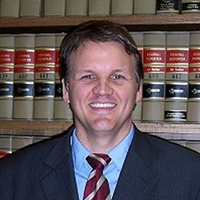Shaw Estate Lawyer, Mississippi
John C. Cox
✓ VERIFIEDAccident & Injury, Divorce & Family Law, Estate, Criminal, Real Estate
The Oldest Law Firm in Cleveland, Mississippi
A native of Cleveland , John C. Cox has been practicing law in his hometown since 1999. John began work as an associate for his late father and cous... (more)
Heath S. Douglas
✓ VERIFIEDAccident & Injury, Business, Estate, Real Estate, Health Care
Heath is a Delta native, spending his childhood and young adult years in Cleveland, Mississippi. He grew up on a farm and was a farmer until he was th... (more)
Robert S. Crump
Education, Litigation, Admiralty & Maritime, Estate Planning, Family Law
Status: In Good Standing Licensed: 43 Years
Helen Eileen Morris Wade
Personal Injury, Family Law, Commercial Real Estate, Wills
Status: In Good Standing Licensed: 31 Years
Andrew M Westerfield
Education, Traffic, Estate, Wrongful Termination
Status: In Good Standing Licensed: 51 Years
Lauren Gabrielle Cantrell
Federal Appellate Practice, Employment Discrimination, Civil Rights, Corporate, Estate Planning
Status: In Good Standing
Joel J Henderson
Accident & Injury, Workers' Compensation, Estate, Admiralty & Maritime, Car Accident
Status: In Good Standing Licensed: 50 Years



